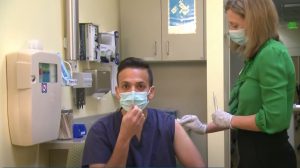NEW YORK (Reuters Health) – In women with severe premenstrual syndrome (PMS), sertraline therapy for 4 months rather than for 12 months is associated with a higher relapse rate, according to a report in the May issue of the Archives of General Psychiatry.
The optimal duration of treatment for women who have responded to PMS therapies is unclear, Dr. Ellen W. Freeman and colleagues from the University of Pennsylvania Health System, Philadelphia note.
To investigate, the researchers examined relapse rates and other related outcomes in 174 patients who were randomized to receive sertraline for 4 or 12 months before switching to placebo for the remainder of the 18-month study. Based on standard criteria, the women were divided into two groups with more or less severe symptoms at baseline.
Sixty percent of women experienced a relapse with short-term therapy compared with 41% with long-term therapy; the corresponding median times to relapse were 4 and 8 months (p = 0.04).
Subjects with more severe PMS symptoms at baseline were roughly twice as likely as those with less severe symptoms to experience a relapse and were also more likely to experience a relapse with short-term treatment (p =0.03), the report indicates.
In the group with less severe symptoms, treatment duration did not affect the risk of relapse, the authors found.
Achievement of remission, the report shows, reduced the odds of relapse by 78% (p < 0.001).
“Patients who demonstrated remission,” the authors note, “were much less likely to experience relapse regardless of treatment duration or the severity of symptoms at baseline.
“This is a compelling indication of the importance of seeking remission as the goal of treatment of PMS,” Dr. Freemen’s group concludes.
Reference:
Arch Gen Psychiatry 2009;66:537-544.




